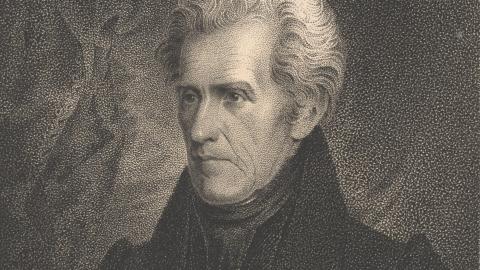Donald Trump was only glancingly wounded on Saturday, but the effects of the attack and of his courageous response will be profound. His chance of victory substantially increased, and the movement he represents will continue to be a powerful force in American policy regardless of November’s result.
Mr. Trump is part of a strain of American politics that Andrew Jackson brought to power in 1828. In domestic politics, Jacksonians are skeptical of big business, hate the political and social establishment, and demand “common sense” solutions to complex problems. They support the military but not an officer class seen as distant from the values and folkways of the nation—West Point stuffed shirts in the 19th century, “woke generals” today. They assume the political class is deeply and irreformably corrupt.

















